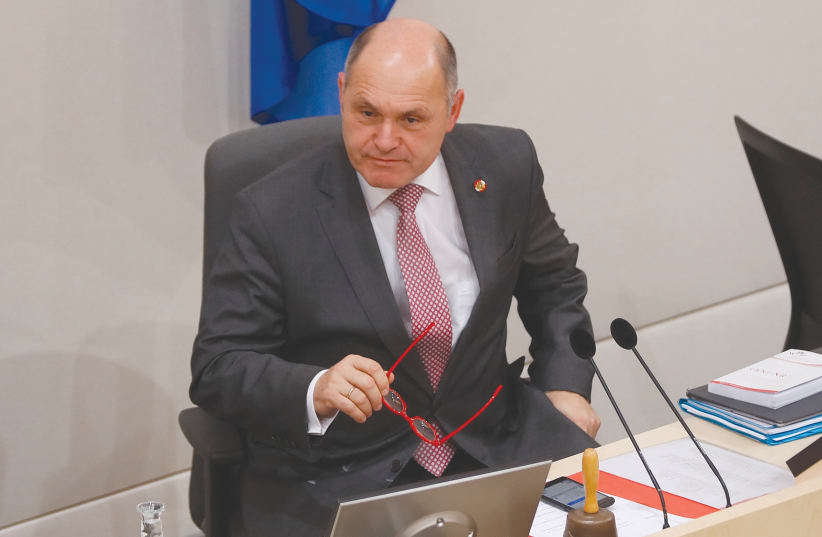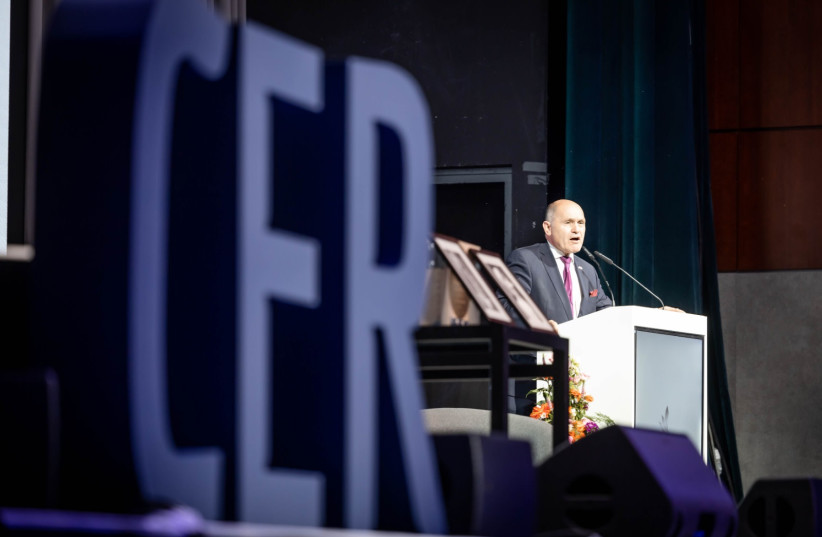MUNICH – Austria needs to emulate how Germany has learned from its history during the Holocaust and how it combats antisemitism, according to Wolfgang Sobotka, president of the National Council of Austria, the lower house of parliament.
“We have a lot to learn from the Germans when it comes to owning our history and taking action,” he said Monday in an interview on the sidelines of the Conference of European Rabbis convention in Munich.
“We always perceived ourselves as the victims of the Nazi regime until the election in 1986, when Kurt Waldheim was elected” president of Austria. “There was an act of changing of minds with the Austrian population: that we are not only the victims but actually also perpetrators.”
Sobotka, 66, is a member of the Austrian People’s Party. Before his political career, he was a teacher and musical conductor.
The situation in 2022 is different, but it still needs work, said Sobotka.
“Only years later do we now have a very clear view of our history, and we have our own national responsibility,” he said. “In the last couple of years, we have done a lot to improve our relations with the Jewish community – to do more for their security; to do more in combating antisemitism in total – even though our law against antisemitism is very strict and strong. But it is not enough. I think it’s really important for us to engage the civil society in combating antisemitism, because it’s a duty of the non-Jewish population.”
Austria has accepted 72,000 refugees from the Russian-Ukraine war, including 1,000 Jews who are being taken care of by the local Jewish community, Sobotka said.
“I think our [Jewish] community has done a lot for the refugees, and we’re very proud of that,” he said.
Sobotka was a keynote speaker at the conference and spoke in honor of European Commission Antisemitism Commissioner Katharina von Schnurbein, who received an award from CER, the primary Orthodox rabbinical alliance in Europe.
“Antisemitism is hundreds and thousands of years old,” he told the audience. “After the Holocaust, in Germany and in Austria, there were processes to take responsibility and acknowledge our history. But within Austria, people forgot what happened. The fight against antisemitism is not the responsibility of the Jewish community but of the non-Jewish community. We experienced it; we learned from it.”
Sobotka noted that “we in Austria granted citizenship to those who suffered and their descendants,” and that Austrians today “understand their history, and the importance of the connection with the Austrian Jewish community.”
Sobotka said that Von Schnurbein “helped many build a bridge and encouraged many to also speak out against antisemitism. Today, there is antisemitism from the center as well, but also from the fringes. This is not acceptable to us, and we have to fight it.”
CER is hosting its 32nd general convention in Munich from Monday to Wednesday. The theme of the convention is “Rabbinical leadership in times of pandemic and war: serving God and community in a new reality.” More than 350 rabbis and their wives from 43 countries and communities throughout Europe are participating.

